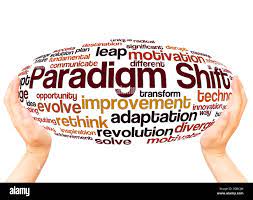11 years ago in 2012, Dr. William Glen Editor-at-Large of the Standford University Press in an interview with David Boulton said that institutional science defends its paradigms in ways that 'disable' the kind of 'open learning' that science should be about.
He said paradigm inertia is the resistance to changing paradigms. There are many reasons paradigms are hard to change, some are scientific, but the most powerful reasons are personal, emotional, and unscientific.
The psychological and economic motives of people whose reputations and incomes depend on their association with a paradigm are at cross purpose with scientifically learning to evaluate a challenge to their paradigm.
If a researcher/scientist/educator has said something in an interview, in his book, research report or in some magazine he will not change his stance when something to the contrary is said by anyone else. This is why the reading wars have been going on for decades.
The seniors ignore what threatens their original ideas. They do not dare discuss this on social media because they do not want to be challenged.
A new idea and better idea has no chance of standing up against the ‘seniors’ who had put forward an idea and agreed upon by many for years.
Paradigms are the mental infrastructures that connect and unify the mental models through which we experience the world. Because paradigms, like religious beliefs, can become so deeply rooted in our identities, they can be very hard to change. Sometimes they are hard to change for scientific reasons, but the most powerful form of resistance is personal, emotional, and thoroughly unscientific. Throughout history, scientists and scholars have resisted changing paradigms when their egos, reputations, and incomes depended on defending them.
The same is true for reading science. The unscientific, self-serving, defense of established reading science paradigms is the main impediment to our progress in reading.
Though each side in the so-called reading wars claims to have science on its side, all sides proceed from and defend the same underlying paradigm and its bedrock assumption:
Does anyone really want to reduce illiteracy? Do they really care about kids who leave school as illiterates?
To be continued...

No comments:
Post a Comment